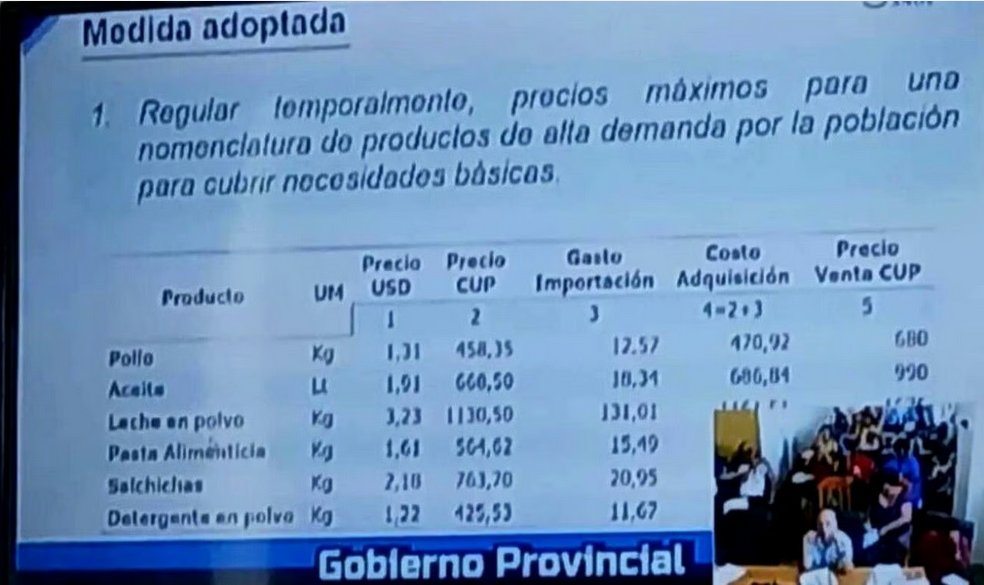
A meeting of private business owners with a Deputy Minister of Finance and Prices exposes tensions over new price caps.
By Glenda Boza Ibarra (El Toque)
HAVANA TIMES – A new regulation to control the price of six essential products sold by private entities in Cuba is about to come into effect, although approval has been delayed due to resistance from those who will be affected by its implementation.
The tensions were notable in a meeting held on June 28, 2024, between the Deputy Minister of Finance and Prices, Lourdes Rodriguez Ruiz, and a group of private entrepreneurs dedicated to selling these products. El Toque obtained access to the audio of the meeting.
In the nearly two-hour recording, the Deputy Minister discussed how the measure will be applied and the conditions considered to establish a “future” centralized price system that will start with chicken, oil, powdered milk, pasta, sausages, and powdered detergent.
“We need to regulate six items, not for a significant reduction in prices, but to contain those prices in the economy,” said Lourdes Rodriguez.
Although the Deputy Minister spoke of the need to increase production so that the market self-regulates with an increase in supply, she did not mention what the State will do to achieve this.
According to Rodriguez, regulating the price of the products will come with an exemption from import tariffs. “This would be for new imports, and that is why the proposed maximum retail prices are higher because they include the tariff,” she assured.
For calculating the price cap of the products, they took into account “the actual prices in the municipalities of the country for six months. The imports of 2023 were studied and defined with the prices of the first quarter of 2024,” explained the Deputy Minister.
The “methodology” was criticized during the meeting when several representatives of the private sector explained that prices vary from one day to another for various reasons, including the exchange rate at the national and international levels.
An entrepreneur added, “I will not pass the uncertainty on to the foreign supplier.”
The entrepreneur also noted that no one will offer a good price or delivery security if the buyer first tells them to wait and see how the price situation adjusts; if one day you buy a container and then tell the supplier to wait for government measures.
In response to the entrepreneurs’ concerns, the Deputy Minister reiterated that the meetings with the state sector were to establish the mechanisms with which the Government will work and acknowledged what seems like a trial-and-error (or improvisation) scenario. “We will regulate, and one day we will deregulate or regulate other products,” she specified.
Another Regulation on the Wrong Path
“From the outset, I can say there will be no milk, oil, or chicken,” said an entrepreneur at the meeting, making a quick calculation of the product costs.
According to him, if the daily dynamics for establishing prices do not take into account the gr


